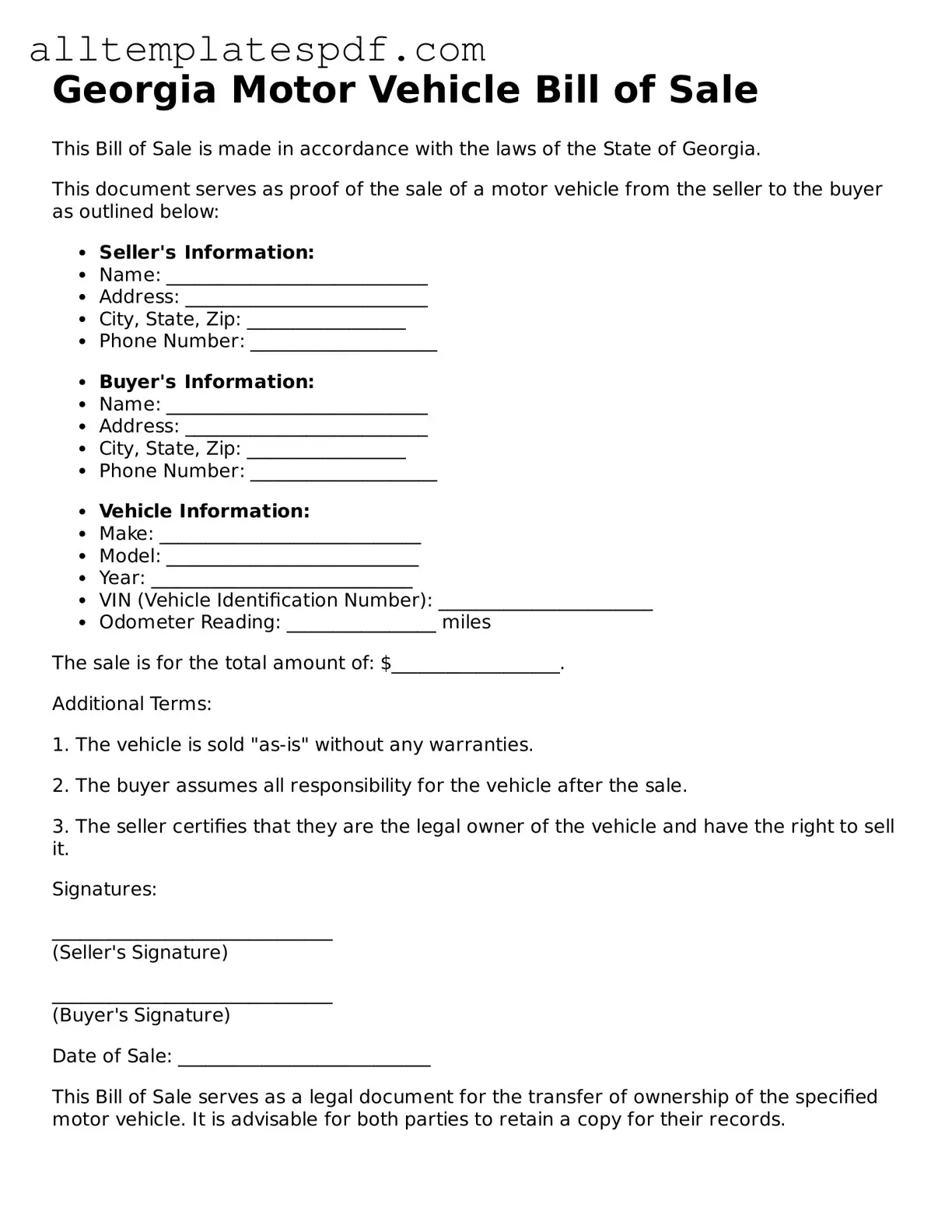Blank Motor Vehicle Bill of Sale Template for the State of Georgia
The Georgia Motor Vehicle Bill of Sale form is a crucial document that serves as a legal record of the transfer of ownership for a vehicle in Georgia. This form includes essential details such as the buyer's and seller's information, vehicle identification number, and the sale price. Understanding how to properly fill out this form can help ensure a smooth transaction, so be sure to complete it accurately by clicking the button below.
Open Editor

Blank Motor Vehicle Bill of Sale Template for the State of Georgia
Open Editor
Fast and easy form completion
Complete Motor Vehicle Bill of Sale digitally — fast and easy.
Open Editor
or
↓ Motor Vehicle Bill of Sale PDF Form
